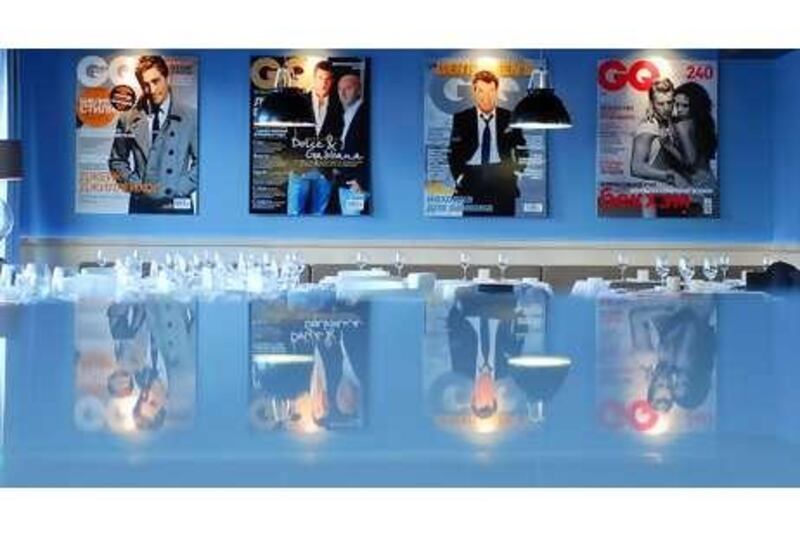Conde Nast plans to launch Middle East versions of its biggest magazines, increasing the likelihood of regional editions of titles such as Vogue and GQ being published in the UAE. The US-based publisher also says its magazine theme restaurants could be open in the UAE "within two years".
The company will look to operate in the region through partnerships with local media and catering companies, starting with a number of restaurant franchises. "We are looking to start magazines in the UAE in the future," said Jonathan Newhouse, the chairman of Conde Nast International. "Usually GQ, Vogue and Glamour are among the first magazines we bring to [a new] market. Conde Nast Traveller ? is another product that has strong potential in the Emirates market."
This month the company launched a new division, Conde Nast Restaurants, which plans to open its eateries in locations such as Dubai, Singapore and Hong Kong. "You could look at the restaurants as a first step to producing magazines in the local market," Mr Newhouse said. He said Dubai was one of the first target markets for its restaurant launches. "The two that would probably be developed there are Vogue Cafe and GQ Bar. There could be others," he said.
Conde Nast's Dubai restaurants would sell alcohol and therefore would be located at upmarket hotels. "I think alcohol is an important ingredient in the success of a restaurant," said Mr Newhouse. "I'd be very surprised if we didn't have restaurants operating in the UAE within two years and I would certainly hope that in the next few years we have some magazines to go along with our restaurants. But the first step for the Vogue and GQ brands will be restaurants."
Although no negotiations have yet taken place, Mr Newhouse said a medium-term aim was to launch editions of its magazines through partnerships with local publishers. "It is a small market, so we'd work with an established group," he said. "We'd look for a publisher ? that has a good reputation. You really need people who know the market." Mr Newhouse said it was "too soon to know" whether the titles published out of the UAE would be in English, Arabic or both.
In 2007, plans to launch a franchised Arabic edition of Vogue were binned after the publisher reportedly said the Middle East was too unstable to support such a title. Mr Newhouse told Press Gazette at the time that, while there were many potential Vogue readers in the Middle East, "unfortunately they live in the same general region as some of the most militant and violent elements". But he now says his comments were "misinterpreted" and that any launch of Conde Nast titles in the region would take local sensitivities into account.
"We've had very few instances around the world of censorship issues with editorial content," Mr Newhouse said. A publishing presence in the UAE would not necessarily act as a centre for the entire Middle East. "I suspect that the Middle East is quite a variegated market," he said. "The UAE is quite different from Iraq. And Beirut in Lebanon is quite another market." The Dubai-based Motivate Publishing publishes Golf Digest magazine under licence from Conde Nast. Motivate's managing partner Ian Fairservice said the US publisher had not spoken to it about expanding Middle East operations.
Mohan Nambiar, the MENA chief executive of the media planning agency MEC, said the launch of such "credible titles" would be welcomed by the advertising industry. "For us, it would be great news as long as they comply with what they do globally," Mr Nambiar said. Mr Newhouse said the presence of Conde Nast's "core advertisers" such as Christian Dior and Chanel had influenced its plans to launch publications in the UAE.
"They're kind of like the litmus test," he said. "If they are present in the market we can consider it. We look for our key advertisers and they are in the Emirates." But other commentators said the local advertising market was too stretched to support such titles. "Who would want to launch a Middle East version of GQ?" said Ali Jaber, the dean of the Mohammed Bin Rashid School of Communications at the American University of Dubai and a consultant to Dubai Media Incorporated.
"We have Esquire Middle East - we should see how that's faring. The advertising industry in the Arab world is suffering big time ? the times when advertisers have spare money to try here and there are gone." @Email:bflanagan@thenational.ae





